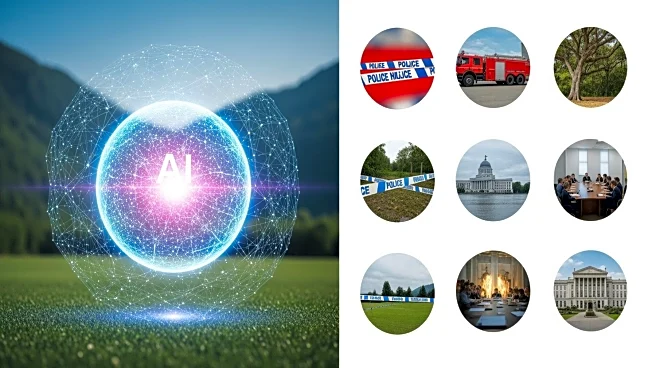What's Happening?
The Earth Species Project, co-founded by Aza Raskin, is utilizing artificial intelligence to decode animal communication, aiming to bridge the understanding gap between humans and animals. The project
employs AI to analyze language patterns across various species, including crows and orcas, to uncover the complexities of animal communication. By pairing audio recordings with behavioral data, researchers hope to gain insights into animal cultures and social structures. This innovative approach could revolutionize our understanding of animal communication and foster a deeper connection with the natural world.
Why It's Important?
Decoding animal communication has the potential to transform our relationship with the natural world, offering insights into animal behavior and social structures. Understanding animal languages could lead to more effective conservation strategies and enhance our appreciation of biodiversity. The project also highlights the ethical considerations of using AI in wildlife research, emphasizing the need for responsible data collection and analysis. As AI continues to advance, it could play a crucial role in preserving endangered species and their habitats.
What's Next?
The Earth Species Project plans to expand its research to include more species and refine its AI models for better accuracy. Collaboration with biologists and conservationists will be essential to ensure ethical practices and maximize the project's impact. The findings could influence policy decisions related to wildlife conservation and habitat protection. As the project progresses, it may also inspire similar initiatives aimed at understanding and preserving the planet's diverse ecosystems.
Beyond the Headlines
The project raises important ethical questions about the use of AI in wildlife research, such as the potential for misuse by poachers or developers. It underscores the need for international norms and regulations to prevent harm to animal populations. Additionally, the research could challenge our perceptions of intelligence and communication, prompting a reevaluation of human-animal relationships and our role in the ecosystem.










